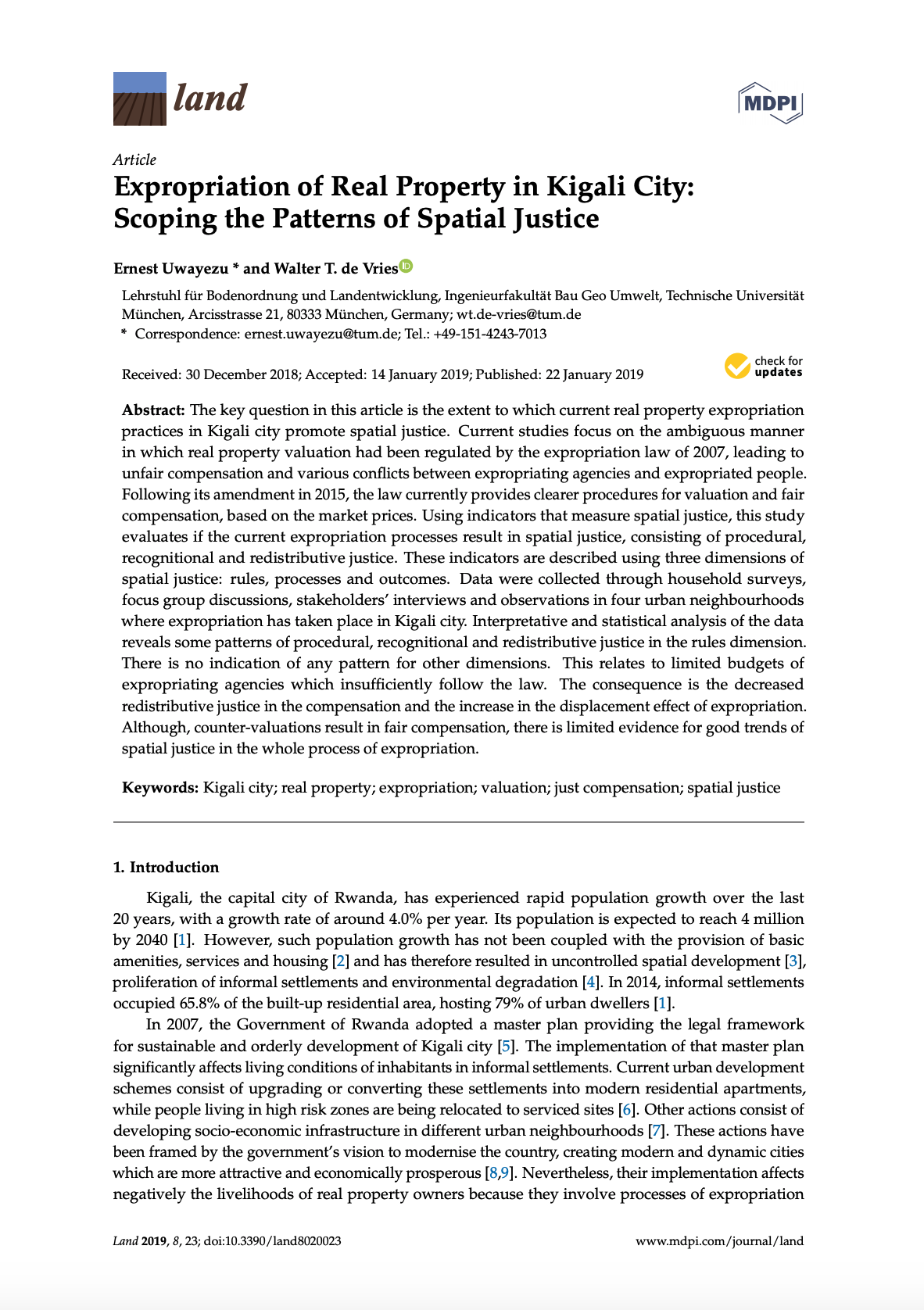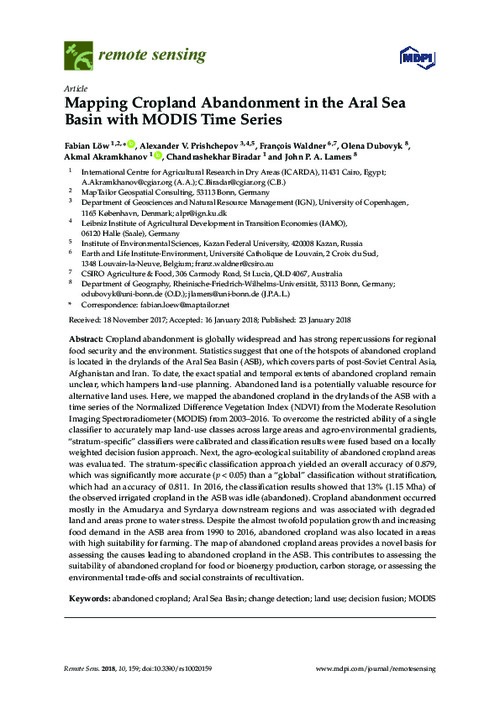Location
MDPI AG, a publisher of open-access scientific journals, was spun off from the Molecular Diversity Preservation International organization. It was formally registered by Shu-Kun Lin and Dietrich Rordorf in May 2010 in Basel, Switzerland, and maintains editorial offices in China, Spain and Serbia. MDPI relies primarily on article processing charges to cover the costs of editorial quality control and production of articles. Over 280 universities and institutes have joined the MDPI Institutional Open Access Program; authors from these organizations pay reduced article processing charges. MDPI is a member of the Committee on Publication Ethics, the International Association of Scientific, Technical, and Medical Publishers, and the Open Access Scholarly Publishers Association (OASPA).
Members:
Resources
Displaying 1331 - 1335 of 1524Expropriation of Real Property in Kigali City: Scoping the Patterns of Spatial Justice
The key question in this article is the extent to which current real property expropriation practices in Kigali city promote spatial justice. Current studies focus on the ambiguous manner in which real property valuation had been regulated by the expropriation law of 2007, leading to unfair compensation and various conflicts between expropriating agencies and expropriated people. Following its amendment in 2015, the law currently provides clearer procedures for valuation and fair compensation, based on the market prices.
Soil Organic Carbon Baselines for Land Degradation Neutrality: Map Accuracy and Cost Tradeoffs with Respect to Complexity in Otjozondjupa, Namibia
Recent estimates show that one third of the world’s land and water resources are highly or moderately degraded. Global economic losses from land degradation (LD) are as high as USD $10.6 trillion annually. These trends catalyzed a call for avoiding future LD, reducing ongoing LD, and reversing past LD, which has culminated in the adoption of Sustainable Development Goal (SDG) Target 15.3 which aims to achieve global land degradation neutrality (LDN) by 2030.
Responding to Climate Change in Tropical Countries Emerging from Armed Conflicts: Harnessing Climate Finance, Peacebuilding, and Sustainable Food
Linking climate action with sustainable development goals (SDGs) might incentivize social and political support to forest conservation. However, further examination of the conceptual entry points for linking efforts for reducing forest-based emissions with those for delivering SDGs is required. This review paper aims to contribute to fulfilling this research need. It provides insights into the links between conserving forests for climate change mitigation and peacebuilding.
Mapping Cropland Abandonment in the Aral Sea Basin with MODIS Time Series
Cropland abandonment is globally widespread and has strong repercussions for regional
food security and the environment. Statistics suggest that one of the hotspots of abandoned cropland
is located in the drylands of the Aral Sea Basin (ASB), which covers parts of post-Soviet Central Asia,
Afghanistan and Iran. To date, the exact spatial and temporal extents of abandoned cropland remain
unclear, which hampers land-use planning. Abandoned land is a potentially valuable resource for
Transforming Cape Vert Informal Settlements
The lack of land ownership databases in developing countries has influenced inhabitants of these countries to occupy public lands. This situation has resulted in areas of informal housing, commerce, and agriculture, ultimately creating new informal settlements, which are becoming a serious problem in developing countries. These informal settlements contain inhabitants settled on public land without any infrastructure and against the landowner’s wishes.





